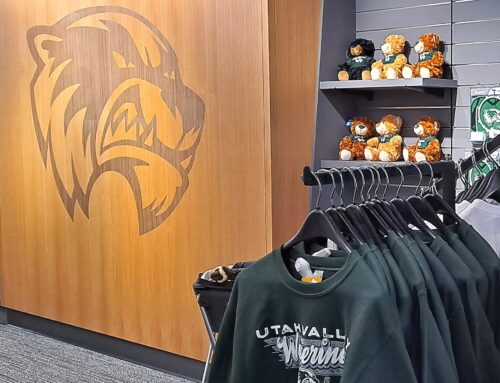The Global Retailing Conference (GRC) in Tucson ended on April 21…here are some final thoughts, after hearing presentations from 20 top executives representing a diverse group of retailers:
Embrace Change
Each retailer who spoke emphasized the fact that they need to change and adapt to succeed. Each is spending a tremendous amount of time, energy, and resources working to understand the changing needs, wants, and preferences of today’s more informed consumer. For college stores, this is a reminder to formalize methods for gathering feedback from your customers. Whether you utilize surveys, focus groups, secret shopper services, or one-on-one interviews…or whether you analyze transactions, develop a customer relationship management database, or otherwise “mine” data, you must find ways to gather intel to make smarter business decisions.
Be a Problem-Solver
For a long time, developing a “unique value proposition” has been the phrase used to challenge retailers to figure out what makes them special and why customers shop at their stores. Multiple speakers at the GRC noted, in various ways, that a more practical way to approach the “unique value proposition” challenge is to think of it as: “What problems do you solve?” And, more importantly, “What problems do you solve better than your competitors?” CAUTION: don’t believe your own hype! Make sure your problem-solving services and products are truly better than those of your competitors.
Emphasize Value & Authenticity
Multiple presenters discussed the risk of claiming to offer the lowest price. The GRC emphasized that consumers want “value” more than “price,” especially for Millennials. The Millennial generation (those born between 1982-1997) are less loyal to brands and more loyal to quality, authenticity, and a larger purpose. College stores are well-positioned to promote products and manufacturers that have these qualities and can also do a much better job of promoting their own purpose: to support the academic mission of the institution and to facilitate student success.
Love Your Customers
Believe it or not, the word “love” was repeated over and over by GRC presenters—that’s “love” as a business strategy. Trust me, it’s not that they’ve had an epiphany and don’t value cold, hard profits. They are realizing, however, that the deeper the relationship they have with customers, the more each customer will spend and the more loyal they will be.
The SVP of Apple Retail shared that they view their physical stores simply as “hardware” (elegant hardware, to be sure) and the customer experience inside the store as the critical “software” that requires “bug fixes,” regular “updates,” and constant development of new features (as any well-designed piece of software would). When is the last time you updated your “software?”
Curate Your Assortment
Execs from Macy's, Wal-Mart, and Fabletics all spoke of the importance of a strategic product assortment strategy. 70% of Fabletics’ sales come in the first 5 days of a month (when new products are released) and they don’t mind selling out in many cases (preferring instead to drive the introduction of “fresh” and innovative products). Macy's is focusing on editing down their assortments and vendor partnerships to avoid duplication and free up dollars and space for new products.
Brick and Mortar is Not Dead
While the growth of eCommerce is clearly being demonstrated and while the importance is commerce via mobile devices is undeniable, the GRC highlighted the value of the physical store and the value of smart retail strategies that put the customer first.
Overall, ICBA highly recommends the Global Retailing Conference as a place to hear how retail industry leaders are addressing change and developing winning strategies.





